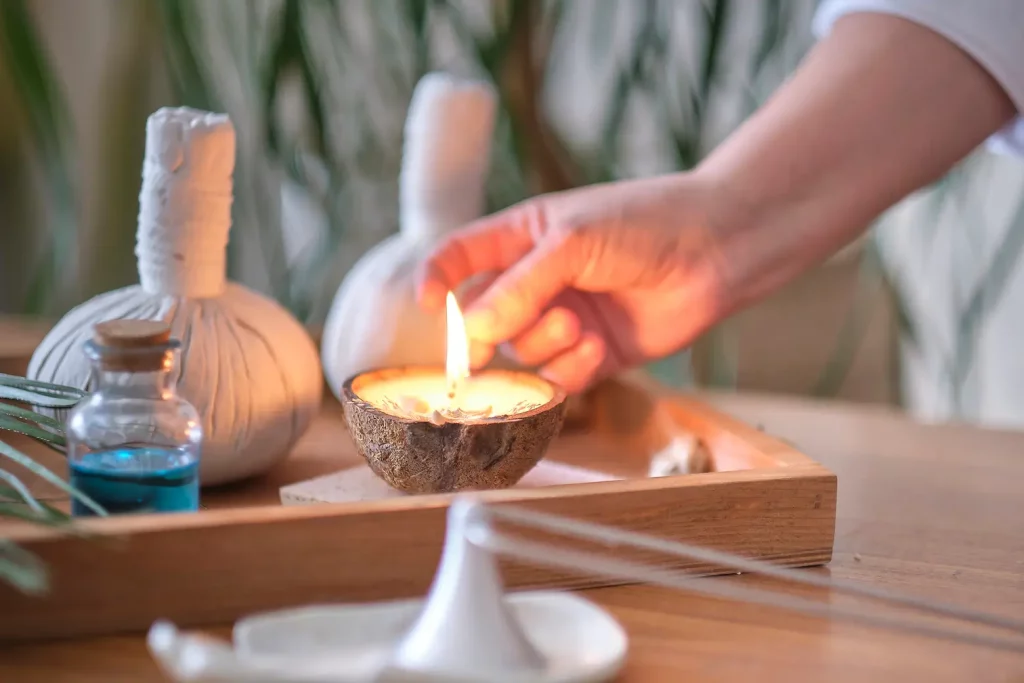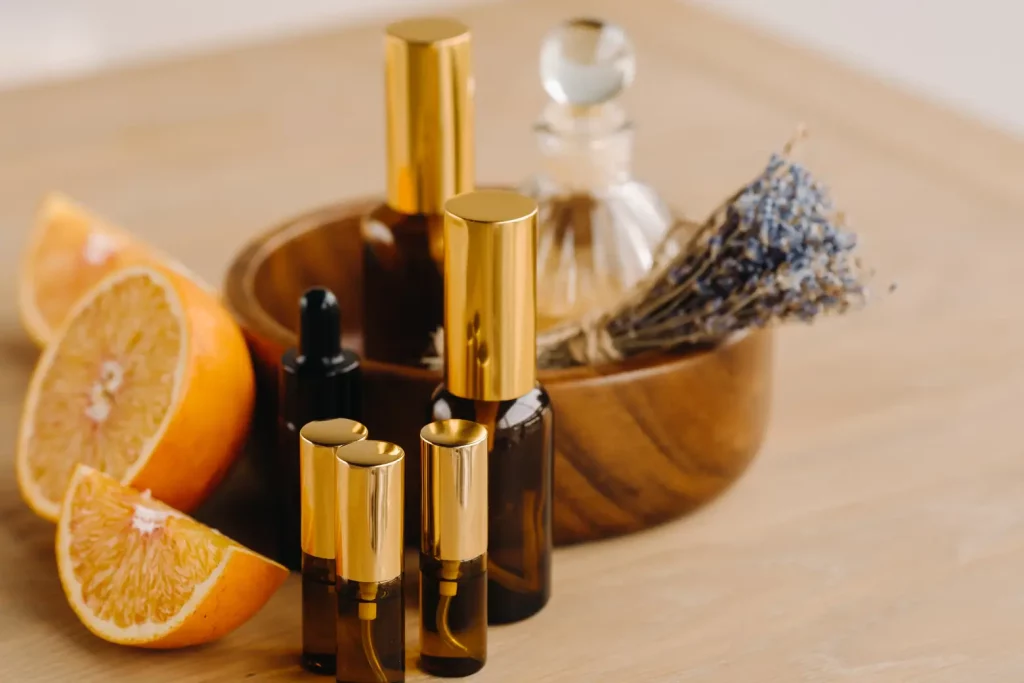Choosing the right scent can be an important decision, whether you’re crafting homemade candles, creating a relaxing atmosphere, or simply enjoying a pleasant aroma in your home. But with so many options available, it can be easy to get overwhelmed. It is not just the scent variable though, but you have two types of oils as well, and these are fragrance oils, and essential oils.
This guide will break down the key differences between these two types of oils, helping you select the perfect one for your desired outcome.
Natural vs. Synthetic
The fundamental difference between fragrance oil and essential oil lies in their origin
Essential Oils
These are extracted directly from botanical sources like flowers, leaves, or fruits. Common extraction methods include steam distillation and cold pressing. Because of this natural origin, essential oils can offer a variety of therapeutic benefits depending on the plant they come from.
Fragrance Oils
These are synthetically created in a lab, allowing for a wider range of scents, including those not found in nature. They often combine artificial and natural components to achieve a desired fragrance.
Here is a table summarizing the key differences:
| Feature | Fragrance Oil | Essential Oil |
|---|---|---|
| Origin | Synthetically manufactured | Extracted from plants |
| Ingredients | Combination of synthetics and natural extracts | Primarily natural compounds |
| Scent Variety | Wider range, including non-natural scents | Limited to natural plant aromas |
| Therapeutic Benefits | None | May possess various therapeutic properties depending on the oil |
| Cost | Generally less expensive | Typically more expensive |
Applications for Scent and Wellness
Understanding the purpose of your oil selection is crucial. Here’s a breakdown of common uses for each type
Fragrance Oils
They are ideal for creating strong, long-lasting scents in various applications, but are used for fragrance, and not aromatherapy. Those applications include:
- Soap making
- Candle making
- Potpourri
- Diffusers
- Room Sprays
Essential Oils
Perfect for aromatherapy and promoting well-being. Some popular uses include:
- Diffusers for inhalation and relaxation
- Bath salts and massage oils
- Skin care
- Natural cleaning products
- Candle making
Just remember that essential oils are highly concentrated and can irritate the skin. Always dilute them with a carrier oil before topical application.
Essential Oils in Candle Making
While fragrance oils might seem like the obvious choice for strong, long-lasting candle scents, essential oils can add a touch of natural fragrance and even potential therapeutic benefits to your candles. However, incorporating essential oils into candles requires a more delicate approach compared to fragrance oils. They also have fewer options, and require advanced techniques, as I mentioned in my online candle making class.
I recommend using fragrance oils if you want to get creative and only have beautiful scented candles, and use essential oils if you want candles with therapeutic benefits.
Choosing What’s Right For You
Both fragrance and essential oils offer unique benefits. Consider these factors when making your selection:
- Desired Scent: Fragrance oils provide a wider variety, while essential oils offer natural, plant-based aromas.
- Application: Fragrance oils are better for crafting and diffusing strong scents, while essential oils are ideal for aromatherapy.
- Budget: Fragrance oils are generally more affordable.
- Safety: Essential oils require dilution before topical use.
Ultimately, the best choice depends on your specific needs and preferences.
By understanding the differences between fragrance oil vs. essential oil, you can confidently select the perfect aromatic companion to enhance your space, promote relaxation, or indulge in creative endeavors.



